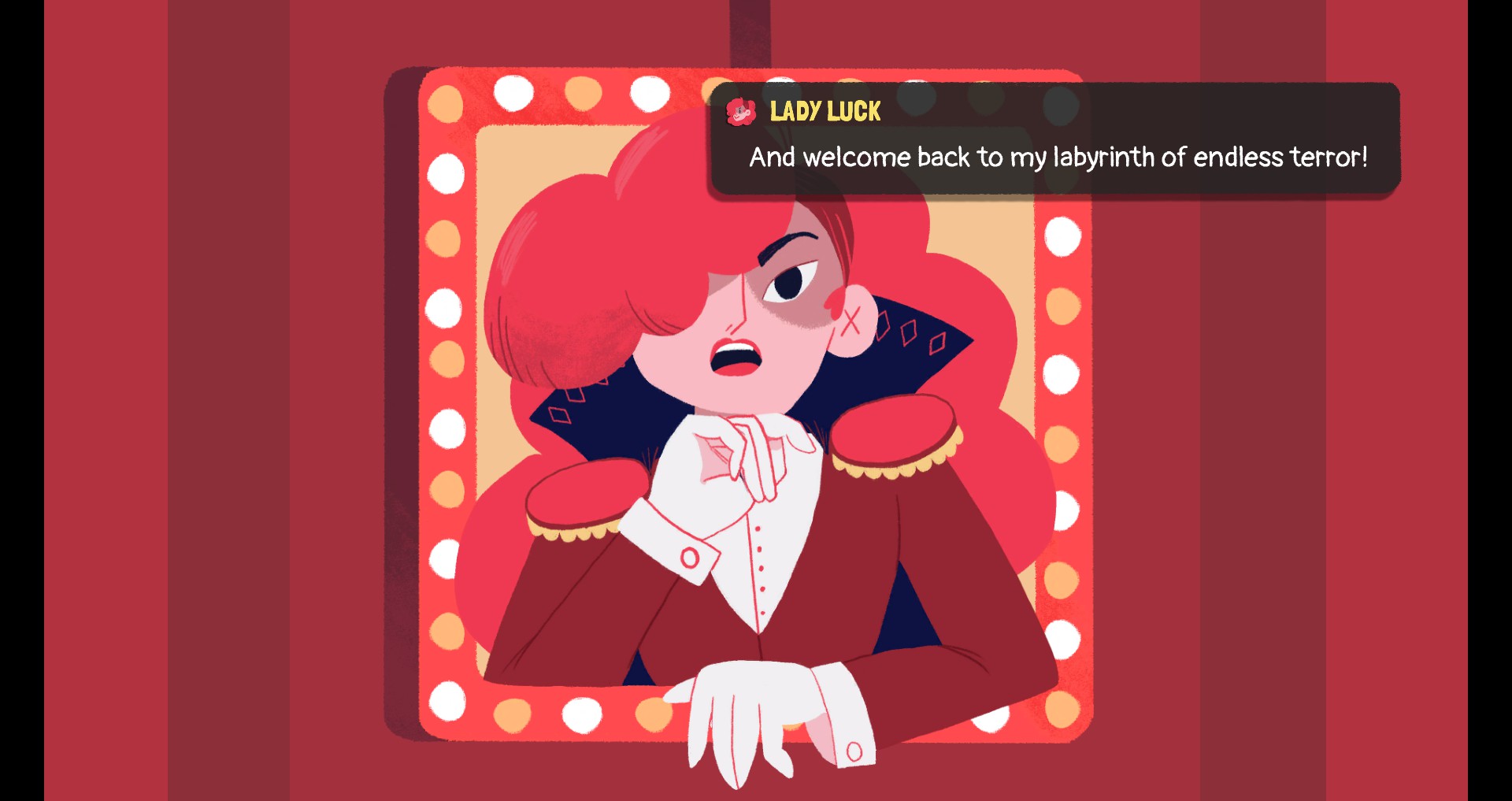We’ve been down this path already. You start at the bottom of a tower or the beginning of a long road. You slay your way towards the goal, gaining new tools periodically on the way. Should you fail, you go back to the drawing board. The rhythm of the deck-builder/roguelite has been imprinted on the entire gaming consumership at this point. We know this pattern on an almost cellular level. Nodes with potential encounters and possible new cards for your deck has the same linguistic application as a red barrel or a waist-high wall. As soon as we see it, we know what to expect, and those expectations are rarely challenged. So I can’t really begin to explain how I got to a point, in the middle of 2019, where I’m almost shocked about how fresh and new Dicey Dungeons feels.
Dicey Dungeons speaks the same language as its sub-genre contemporaries, but it does so in such an elemental way that it’s like learning that language all over again. I imagine if I—almost 15 years removed from my last English class—sat in English 101, reintroduced to grammar and concepts I’ve used for over a decade, it would feel a little like this.

In a way, it has made me appreciate the “learn a language in your mid life” hustles out there. Anyone who’s been speaking, into their adulthood loves the idea of seeing something they do every day in a different light. Maybe Dicey Dungeons is the Duolingo of video games?
DD is fundamentally similar to Slay the Spire, Griftlands, etc., but every piece seems far more rudimentary. Each character you choose to play as navigates the combat encounters in the game show-themed dungeons extremely differently. Some more advanced characters like The Robot employ such different mechanics that it almost feels like you’re playing a completely different game.

This is a creative freedom that is made possible by the dice-based mechanics. Characters roll dice and can assign them to cards to execute attacks. At its most straight-forward, a weapon does damage based on the number of the die used with it. Things get a bit more complex once your start adding number restrictions, letting you only use dice up to a certain number, or restricting them to either even or odds. Add in status ailments and special limit breaks, and Dicey Dungeon becomes deceptively deep.
As a whole, Dicey Dungeons is just one man taking a simple, single mechanic and saying, “How many different ways can we make/modify dice rolling?” I didn’t expect this “hiding in plain sight” sort of brilliance from Terry Cavanaugh. He got his name in this business through high-intensity, abstract, masocore instant classics like VVVVVV and Super Hexagon. To see such a deconstructed, expressive, and more cerebral affair from him may be the biggest surprise of DD.

It can get challenging, as well. Especially after you unlock Episodes, which modify your runs with sometimes oppressive restrictions. One gives The Warrior two upgraded Battle Axes, objectively righteous weapons in anyone’s hands, but it also permanently Curses you, meaning that there’s a 50% chance that you’ll put a die on the weapon, and instead of swinging it, it’ll poof out of existence for the rest of the turn. It’s diabolical, really.
There is still room in this subgenre to impress and innovate! If you’ve played your fill of the Nowhere Prophets and the Deep Sky Derelicts of the world and are looking for something new, you should play Dicey Dungeons. It’s different enough from these other titles that it avoids the cynical burnout that can come from Too Many Card Games. If you’ve never touched the genre and are looking for a great place to start, play Dicey Dungeons. It will get you thinking about deck building and RNG manipulation in a more elemental way, and is a great gateway drug to the hard stuff.
Code provided by the game’s developer.






